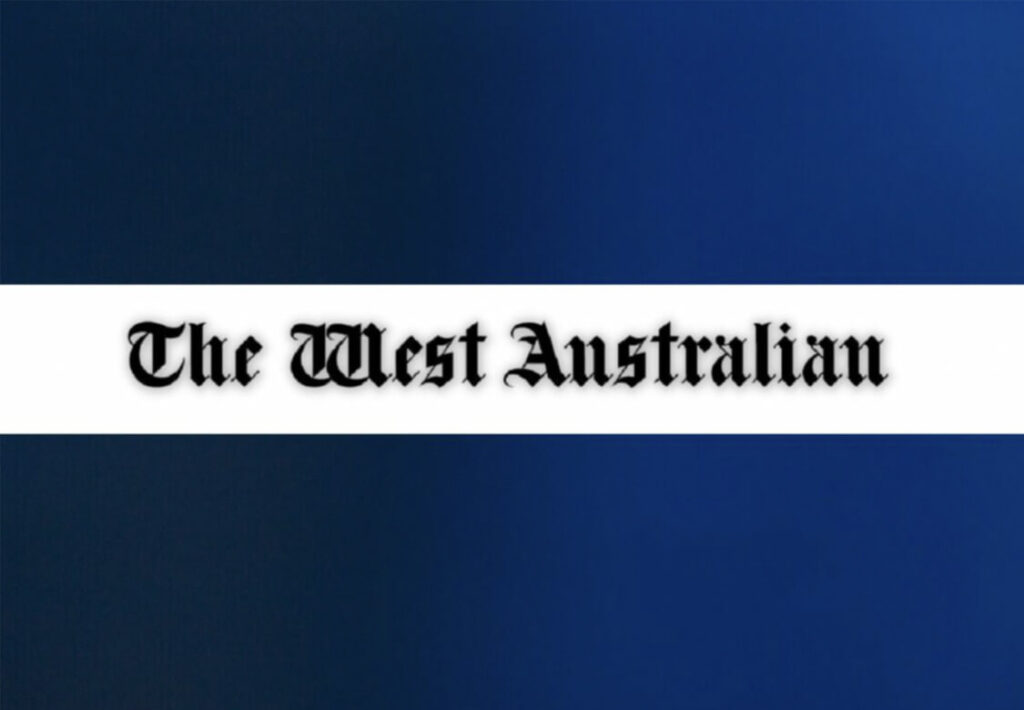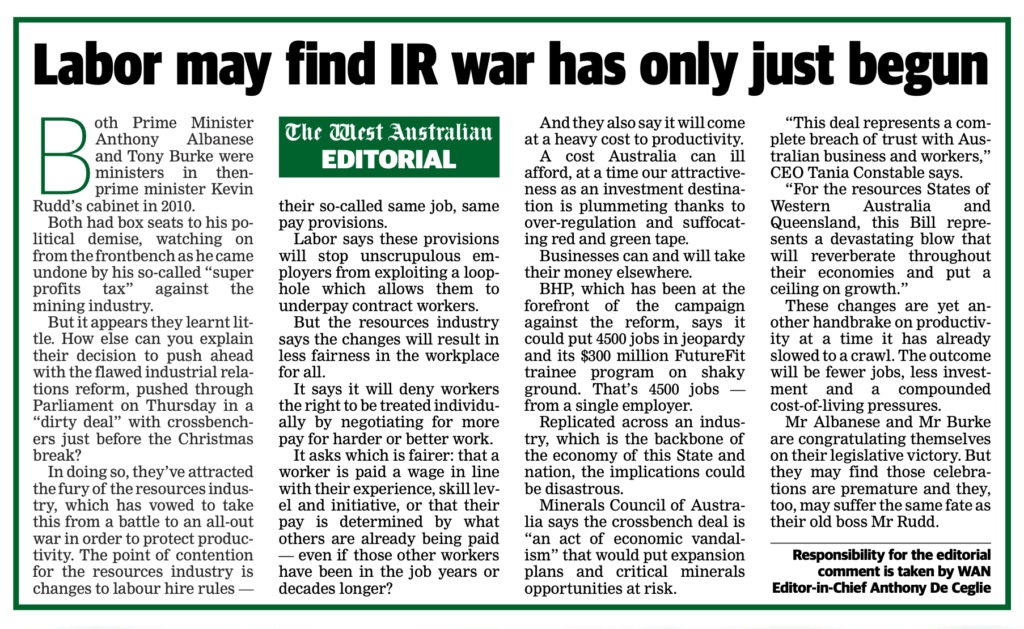

Responsibility for the editorial comment is taken by
WAN Editor-in-Chief Anthony De Ceglie.
Both Prime Minister Anthony Albanese and Tony Burke were ministers in then-prime minister Kevin Rudd’s cabinet in 2010.
Both had box seats to his political demise, watching on from the frontbench as he came undone by his so-called “super profits tax” against the mining industry.
But it appears they learnt little.How else can you explain their decision to push ahead with the flawed industrial relations reform, pushed through Parliament on Thursday in a “dirty deal” with crossbenchers just before the Christmas break?
In doing so, they’ve attracted the fury of the resources industry, which has vowed to take this from a battle to an all-out war in order to protect productivity.The point of contention for the resources industry is changes to labour hire rules — their so-called same job, same pay provisions.
Labor says these provisions will stop unscrupulous employers from exploiting a loophole which allows them to underpay contract workers.
But the resources industry says the changes will result in less fairness in the workplace for all.
It says it will deny workers the right to be treated individually by negotiating for more pay for harder or better work.
It asks which is fairer: that a worker is paid a wage in line with their experience, skill level and initiative, or that their pay is determined by what others are already being paid — even if those other workers have been in the job years or decades longer?
And they also say it will come at a heavy cost to productivity.
A cost Australia can ill afford, at a time our attractiveness as an investment destination is plummeting thanks to over-regulation and suffocating red and green tape.
Businesses can and will take their money elsewhere.
BHP, which has been at the forefront of the campaign against the reform, says it could put 4500 jobs in jeopardy and its $300 million FutureFit trainee program on shaky ground. That’s 4500 jobs — from a single employer.
Replicated across an industry, which is the backbone of the economy of this State and nation, the implications could be disastrous.
Minerals Council of Australia says the crossbench deal is “an act of economic vandalism” that would put expansion plans and critical minerals opportunities at risk.
“This deal represents a complete breach of trust with Australian business and workers,” CEO Tania Constable says.
“For the resources States of Western Australia and Queensland, this Bill represents a devastating blow that will reverberate throughout their economies and put a ceiling on growth.”
These changes are yet another handbrake on productivity at a time it has already slowed to a crawl. The outcome will be fewer jobs, less investment and a compounded cost-of-living pressures.
Mr Albanese and Mr Burke are congratulating themselves on their legislative victory. But they may find those celebrations are premature and they, too, may suffer the same fate as their old boss Mr Rudd.